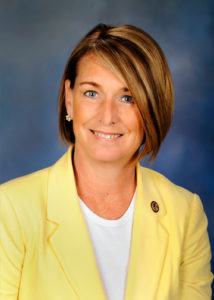VILLA PARK, Ill. – State Rep. Deb Conroy, D-Villa Park, is highlighting mental health resources available and encouraging residents to care for their mental health as the COVID-19 crisis presents new challenges to maintaining mental health.
“If you’re scared, anxious, depressed, stressed, or just on edge due to this global pandemic, please know that you are not alone and that it is okay to be struggling right now,” said Conroy, who chairs the House Mental Health Committee. “These are understandable feelings, especially with the uncertainty that lies ahead of us and the social isolation of stay at home orders. Sometimes writing your thoughts down, going for a walk, turning off social media or talking to a trusted friend is enough to improve your mental health, and if so, it’s important to set aside the time to engage in those activities to care for your mental health. Other times, it takes seeking the help of a professional. There is nothing wrong with needing to take any of these steps and know that there are resources are available to you.”
Conroy urges residents feeling overwhelmed or concerned about a loved one to call the toll-free, confidential Substance Abuse and Mental Health Services Administration’s Disaster Distress Hotline at 1-800-985-5990. Those experiencing emotional distress can also text “TalkWithUs” to 66746 to connect with a trained crisis counselor. Both services are available 24 hours a day. A list of additional resources provided by the Kennedy Forum Illinois can be found at thekennedyforumillinois.org/resources-for-your-mental-health-during-covid-19-protocols.
The governor recently issued an executive order expanding telehealth services for mental health and behavioral healthcare, giving more flexibility to patients in need of mental health services and the providers who treat them. Patients are urged to inquire with their insurance companies and providers to learn more about telehealth services that may be available to them.
“I’ve dedicated my legislative career to eliminating the stigma of mental health and removing the barriers to care that prevent so many from seeking help,” Conroy added. “If these last few weeks have taught us anything, it’s how important it is for each of us to take charge of our own health. That extends to our mental health just as equally as it applies to our physical health.”
